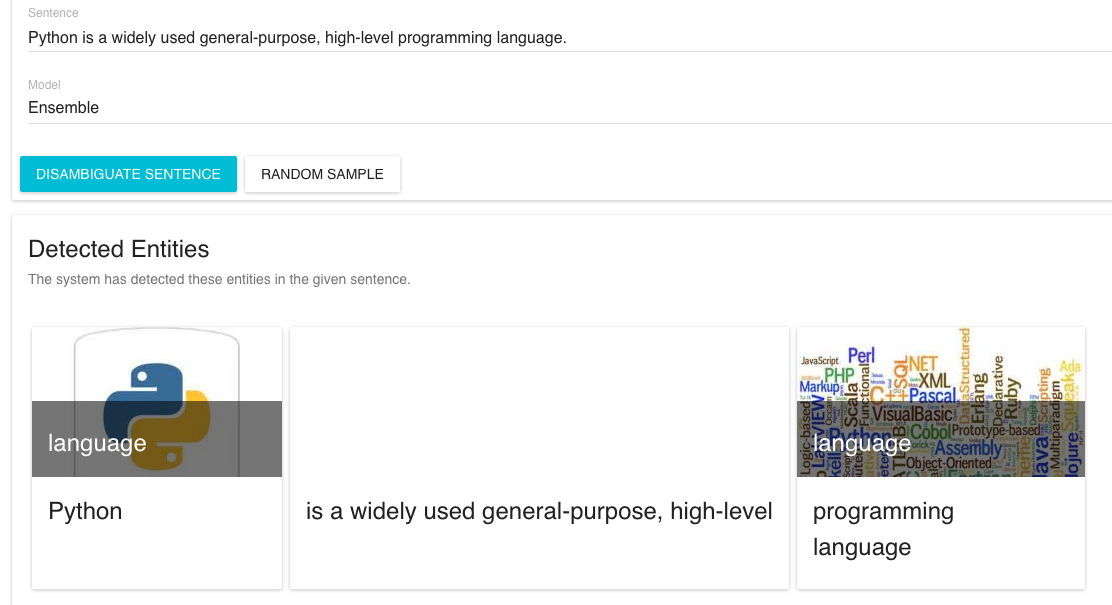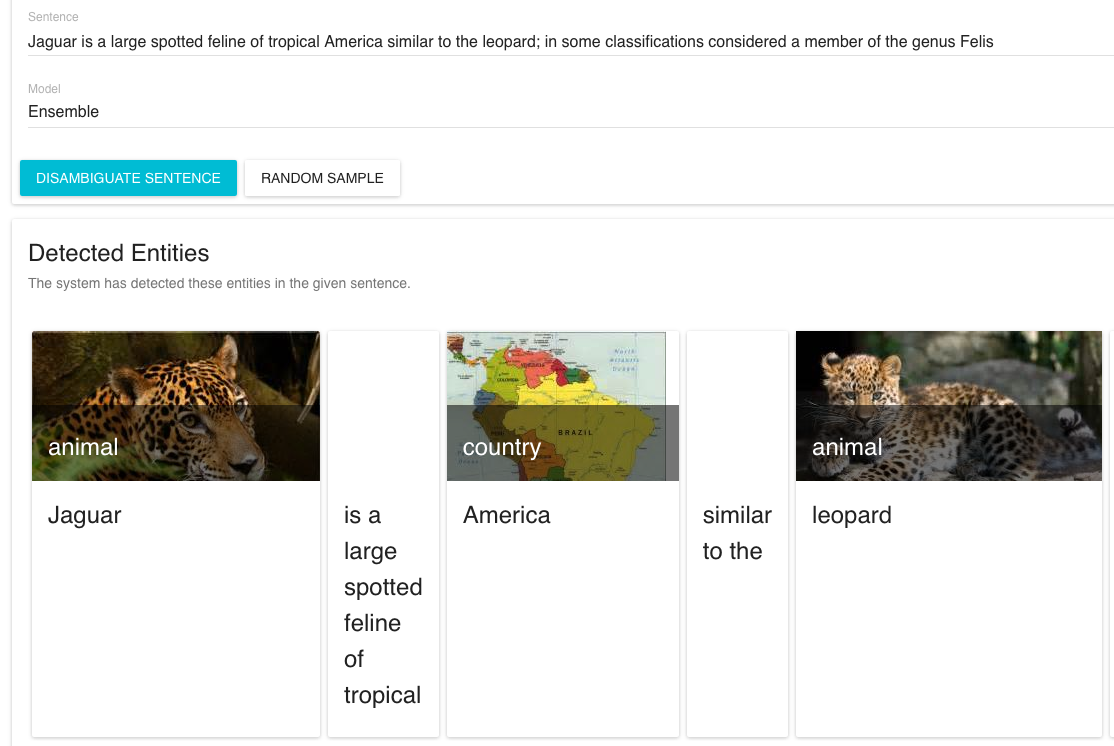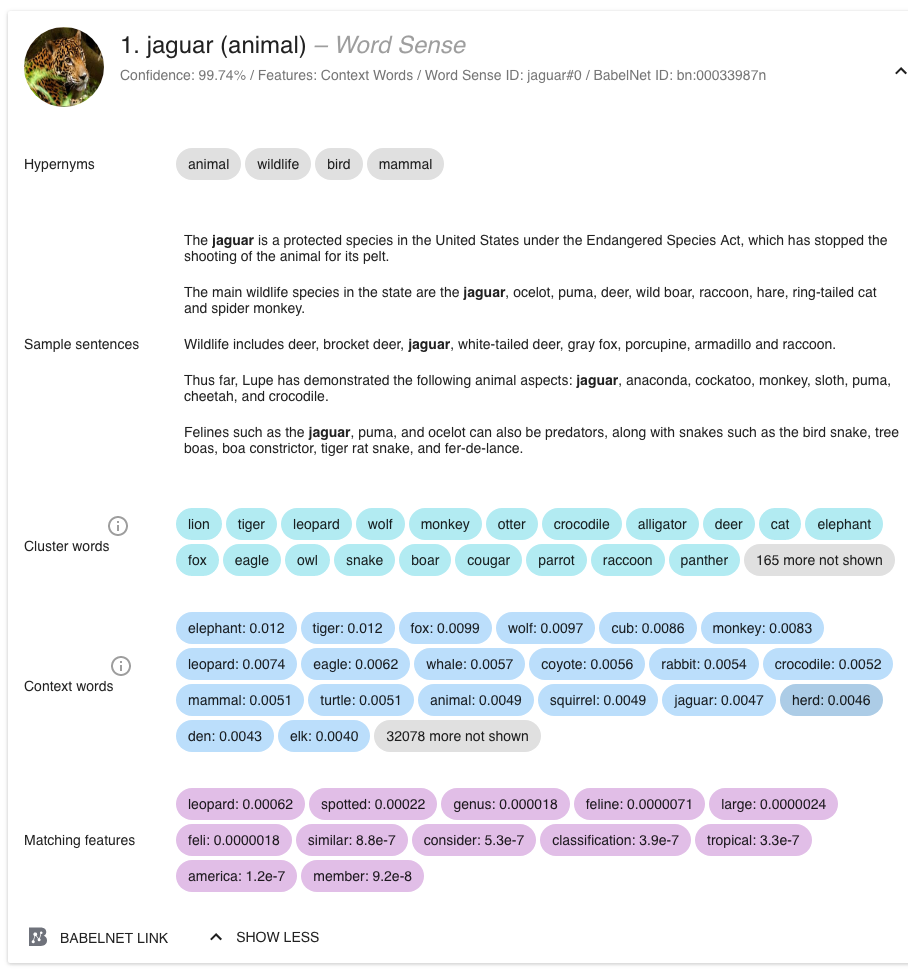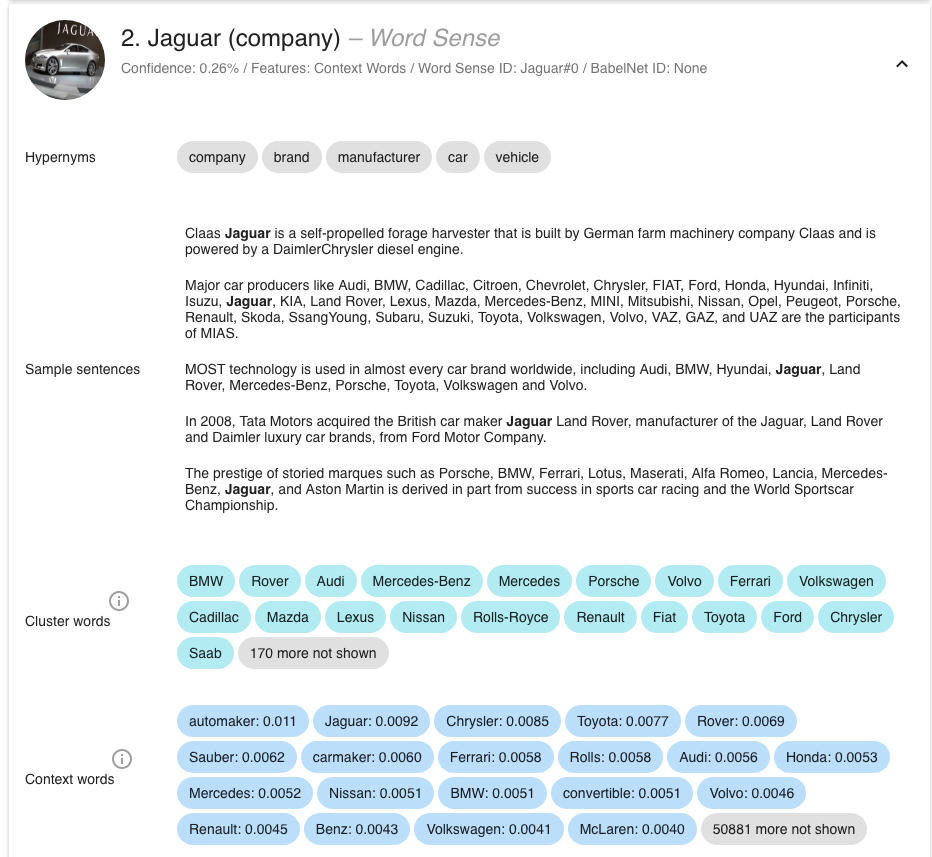Word Sense Disambiguation
Unsupervised, Knowledge-Free, and Interpretable Word Sense Disambiguation
This page contains a description of a word sense disambiguation (WSD) system based on the word sense inventories induced by the JoBimText project. The distinctive feature of this WSD model is that it is at the same time unsupervised, knowledge-free, and interpretable.
Description
Interpretability of a predictive model is a powerful feature that gains the trust of users in the correctness of the predictions. In word sense disambiguation (WSD), knowledge-based systems tend to be much more interpretable than knowledge-free counterparts as they rely on the wealth of manually-encoded elements representing word senses, such as hypernyms, usage examples, and images. We present a WSD system that bridges the gap between these two so far disconnected groups of methods. Namely, our system, providing access to several state-of-the-art WSD models, aims to be interpretable as a knowledge-based system while it remains completely unsupervised and knowledge-free. The presented tool features a Web interface for all-word disambiguation of texts that makes the sense predictions human readable by providing interpretable word sense inventories, sense representations, and disambiguation results. We provide a public API, enabling seamless integration.
The system performs extraction of
Resource
- The source code of the system, featuring instructions on in-house deployment with docker.
- The original publication at the EMNLP'2017 conference.
- System architecture and documentation of the API.
Screenshots




